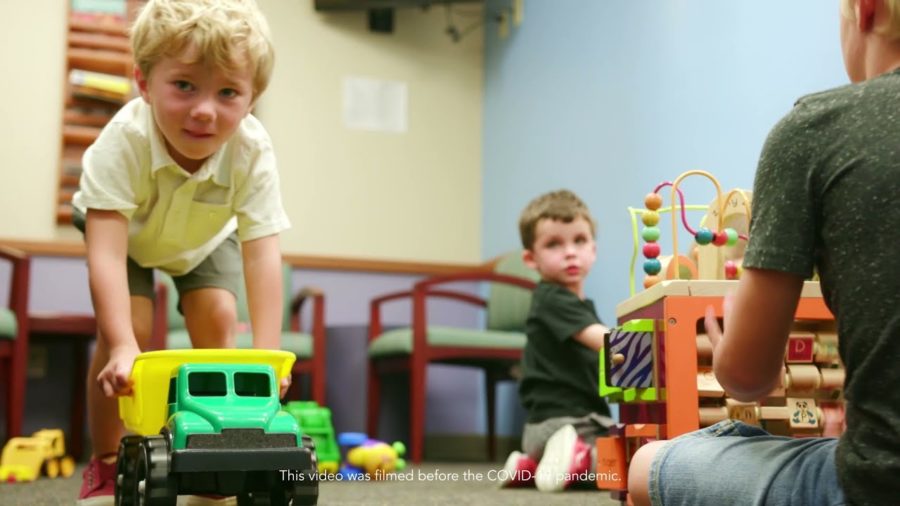When women in double zero jeans and men sporting perfectly toned bodies are plastered on every billboard and magazine we come in contact with, itâs not surprising that men and women of all ages are trying to attain the body of a supermodel. Sadly, this is realistic for only about 1% of the general population. Eating disorders have increased dramatically in the last 30 years , so much that now one or two out of every 100 students will struggle with one. âGirls have a tendency to strive to get into smaller sizes, however, getting to that double zero can come with serious and negative health implications.â said Susan Owen, who is helping a family member cope with Anorexia. âI doubt they are thinking about osteoporosis, infertility, and a myriad of other health complications associated with eating disorders.â It has come to a point in todayâs society where reality is so distorted that 75% of women at a normal weight think that they are overweight. Although 90% of eating disorders do pertain to women, we often forget that men can develop them too. Women who develop eating disorders are most often trying to lose weight to become skinnier; whereas men are trying to appear more athletic and muscular. Either way, what starts out as healthy diet and exercise can quickly twist around to obsession with food restriction and working out at an unhealthy level. âA person will lie and be secretive,â said Owen. âAnorexia becomes their best friend.â Once a person gets sucked into an eating disorder their perception of their body becomes distorted to the point where they feel fat no matter how skinny they actually are. They often avoid social activities that involve meals, exercise excessively, constantly weigh themselves, and become very sensitive when one brings up their eating habits. Itâs only natural for a person to start to feel good when theyâve lost enough weight to fit into a smaller pair of jeans, or perform better in physical activities. These things, along with the encouraging comments from family, friends, and coaches, will often give that person enough motivation to continue with their eating habits no matter how unhealthy they are. However, all the positive gains they are receiving will soon be swept away by the negative. âItâs a very lonely disease,â said Owen, who has seen these negative consequences first hand. A person struggling with an eating disorder can suffer from depression, hair loss, lanugo (hair growth all over the body), fainting, osteoporosis, heart failure, dehydration, and even death, along with countless other medical problems. Once an eating disorder has overpowered a person, they will often deny it, even to themselves, and may even become angry and shut down if confronted. Therefore itâs best to speak with them privately. âBe persistent in a non-threatening way,â Owen said. âDonât shy away from it.â It is crucial for a person with an eating disorder to seek professional help as soon as possible. There they can receive medical stabilization, restoration to body weight, as well as psychological treatment. On average it takes two to four years to fully recover from an eating disorder and develop healthier ways of thinking and eating. Everyone has off days when they donât feel up to par and complain about each little flaw that seems to be showing from every angle, but thatâs exactly what gives them as well as others an unhealthy body image. The best way to prevent an eating disorder is to prevent the negative messages about body images that are constantly thrown towards us. Slowly and surely, more people are becoming aware of the negative body images engraved in adolescentsâ heads; and help to create healthier ways of thinking are on their way. Owen will be helping Mary Greeley Medical Centerâs Diabetes and Nutrition Center hold a Grand Casino Night May 17th to raise money, in hopes of partnering with the University of Iowa for direct services and starting an eating disorder support group to provide a resource for needy families. âI donât want any other family or child to go through this,â said Owen. If you or someone you know is suffering from an eating disorder and need someone to talk to for help feel free to contact Susan Owen at [email protected].
Categories:
Anorexiaa constant struggle for youth
BRIDGET BROWN
•
January 29, 2008
Story continues below advertisement
0
Donate to The WEB
$75
$450
Contributed
Our Goal
Your donation will support the student journalists of Ames High School, and Iowa needs student journalists. Your contribution will allow us to cover our annual website hosting costs.

































